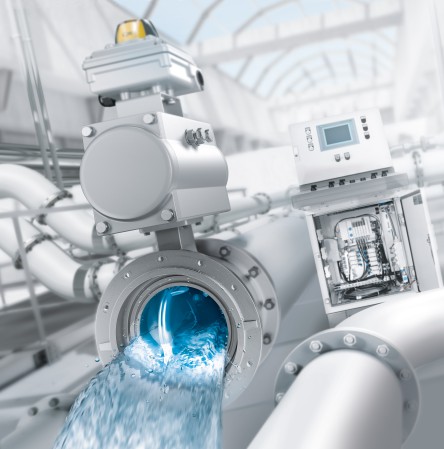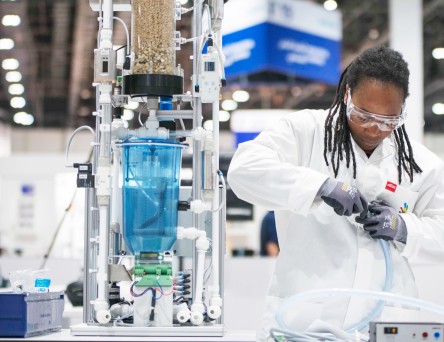Process automation provides tools for sustainable water resources management.
Access to clean water and sanitation is a basic human right and a Sustainable Development Goal of the United Nations. Yet, scarcity is a critical global challenge. By 2050, the global water demand for domestic, industrial, and agricultural uses is expected to increase by 30%, threatening to exceed availability. Therefore, all water use, particularly industrial, needs to be efficient and sustainable.
Water security requires sound water management. Water management is essentially the core of environmental technology due to its heavy use in industry for fabricating, processing, washing, diluting, cooling/heating, or transporting products, and for electric power production. Optimizing water usage in industrial settings and treating wastewater before it’s returned to nature are vital components of water management.
Qualified workers are essential to engineering, deploying, maintaining, and operating water and wastewater systems and infrastructures that collect, treat, and distribute water. These installations rely heavily on process automation – specifically on instrumentation and process control devices and systems – key features of our educational and industrial expertise.

Water 4.0 transforms skills requirements.
IT and new technologies are modernizing the water industry, with water systems and facilities turning to digitalization and automation to improve overall efficiency, reliability, and safety and to partially offset skilled-labor shortages. The integration of Industry 4.0 methodologies and technologies is revolutionizing water management, giving rise to Water 4.0.
Cyber-physical systems, the industrial Internet of Things (IoT), big data, IT systems, decentralization, and system interoperability are all features of Water 4.0. For example, physical-assets management is increasingly performed through cloud-based instrumentation data. This digitalization of the water industry directly impacts skills requirements for water technicians and process control specialists. Water 4.0 allows intelligent networking of all water stakeholders – users and suppliers – in a sustainable water infrastructure.
As the water industry becomes high tech, so must its workers. The water and wastewater workforce needs a broader range of skills beyond a comprehensive, structural-level understanding of water systems. They need digital literacy and troubleshooting skills and wide-ranging soft skills, such as communication, collaboration, creativity, and critical thinking, all of which promote capable decision-making and problem-solving in cross-disciplinary teams.

Practice in real-world settings
To learn effectively, students must be exposed to technologies they will encounter in the workplace. However, for practical, safety, and efficiency reasons, it’s impossible for them to experiment on live systems, which are often vast and complex. Yet, without hands-on training, learning is simply theoretical and hardly prepares students for real-world scenarios. Our training systems and simulations solve this dilemma.
Teachers and industry training managers can rely on our learning solutions to create hands-on training environments aligned to industrial skills requirements. Our dual expertise in education and industry gives us valuable insights into the needs for upskilling current workers and onboarding new hires.

Technical training in key areas for optimal water use
Operating water and wastewater distribution and collection systems requires the planning, operating, installing, and troubleshooting of basic to complex mechanical, electrical, and instrumentation devices, equipment, infrastructure, and facilities. The workers responsible for these tasks include water and environmental technicians, operators, instrumentation and process technicians, and engineers.
We can help train future workers and upskill current workers, especially in key technical fields:
Essential prerequisites for technical careers
Fundamental principles of mechanics and electromagnetism. Simple machines, mechanics, electrical circuits. Pneumatics. Industrial safety. And more.
Water collection, treatment, distribution
Water circuit (collection, transportation, treatment, purification, membrane and sand filtration, supply, etc.). Operations and energy optimization. And more.
Physical assets maintenance
Installation, operation, maintenance, replacement, and troubleshooting of components (valves, transmitters, etc.). Piping and pipefitting. Industrial motors and pumps. Mechanical drives. Rigging. And more.
Sensing, instrumentation and process control
Instrumentation and control devices. Control strategies. Energy transfer. PLC programming. Distributed control systems. Smart sensors. Monitoring of process variables like pressure, flow, temperature, pH, water quality, etc. And more.
Network and communication
Technologies for information transmission and storage. Wireless communications. Industrial communication protocols. IoT. Networking. Cybersecurity. Energy efficiency. CP Systems. And more.